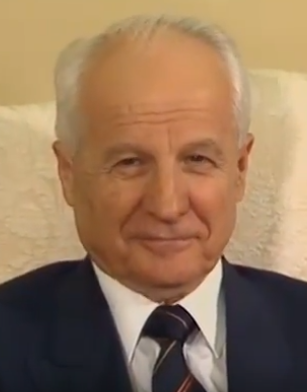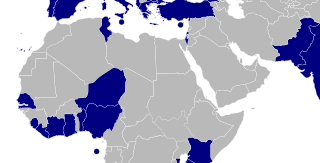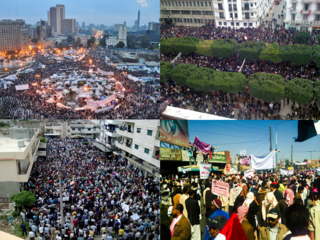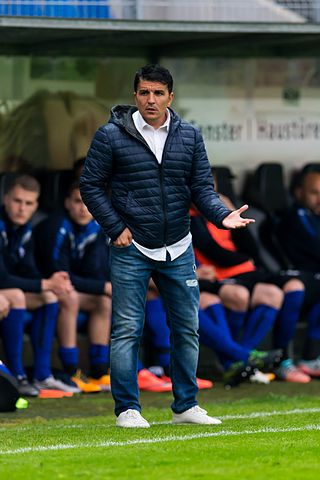Related Research Articles

Ahmet Kenan Evren was a Turkish politician and military officer, who served as the seventh President of Turkey from 1980 to 1989. He assumed the post by leading the 1980 military coup.

According to The Economist Group's Democracy Index 2020 study, Israel is the only democratic country in the Middle East, while Tunisia is the only democracy in North Africa. The level of democracy in nations throughout the world published by Freedom House, a U.S.-based, U.S. government-funded advocacy organization, and in various other freedom indices, report the Middle Eastern and North African countries with the highest scores are Israel, Tunisia, Turkey, Lebanon, Morocco, Jordan and Kuwait. Countries that have been consistently labelled as 'not free' by Freedom House (2017-2021) have been Iran, Iraq and Egypt. They have been increasingly becoming more and more adverse to the idea of liberal democracy with their scores steadily decreasing, only Iraq out of these countries have maintained some level of internet freedom with a score of 41/100. The remaining countries of the Middle East are categorised as authoritarian regimes, with the lowest scores held by Saudi Arabia and Yemen.

MENA, an acronym in the English language, refers to a grouping of countries situated in and around the Middle East and North Africa. It is also known as WANA, SWANA, or NAWA, which alternatively refers to the Middle East as Western Asia and is a way to refer to the geography instead of the political term.

Kenan Sofuoğlu is a Turkish parliamentarian and former professional motorcycle racer. He holds a record five Supersport World Championship titles. Sofuoğlu also competed at the Superbike World Championship in 2008 and at the Moto2 World Championship in 2010 and 2011.

Kofta is a family of meatball or meatloaf dishes found in Balkan, Middle Eastern, North African, South Caucasian, South Asian and Central Asian cuisines. In the simplest form, koftas consist of balls of minced meat – usually beef, chicken, pork, lamb or mutton, or a mixture – mixed with spices and sometimes other ingredients. The earliest known recipes are found in early Arab cookbooks and call for ground lamb.

The Aviation Squadrons of the Ottoman Empire were military aviation units of the Ottoman Army and Navy. The history of Ottoman military aviation dates back to June 1909 or July 1911. The organisation is sometimes referred to as the Ottoman Air Force. The fleet size reached its apex in December 1916, when the Ottoman aviation squadrons had 90 airplanes. The Aviation Squadrons were reorganized as the General Inspectorate of Air Forces on 29 July 1918. With the signing of the Armistice of Mudros on 30 October 1918, the Ottoman military aviation effectively came to an end. At the time of the armistice, the Ottoman military aviation had around 100 pilots; 17 land-based airplane companies ; and 3 seaplane companies ; totalling 80 aircraft.
In political science, the waves of democracy are major surges of democracy that have occurred in history. Although the term appears at least as early as 1887, it was popularized by Samuel P. Huntington, a political scientist at Harvard University, in his article published in the Journal of Democracy and further expounded in his 1991 book, The Third Wave: Democratization in the Late Twentieth Century. Democratization waves have been linked to sudden shifts in the distribution of power among the great powers, which created openings and incentives to introduce sweeping domestic reforms.
Authoritarianism is a political system characterized by the rejection of political plurality, the use of strong central power to preserve the political status quo, and reductions in the rule of law, separation of powers, and democratic voting. Political scientists have created many typologies describing variations of authoritarian forms of government. Authoritarian regimes may be either autocratic or oligarchic and may be based upon the rule of a party or the military. States that have a blurred boundary between democracy and authoritarianism have some times been characterized as "hybrid democracies", "hybrid regimes" or "competitive authoritarian" states.

Atilla Engin (1946-2019) was a Turkish American fusion jazz drummer. From 1974 to 2001 he was active in Denmark as a musician and educator; he organized music festivals and represented Denmark as a musical ambassador. In 2001, he left Denmark for the United States, where he formed an orchestra.

The Arab Spring was a series of anti-government protests, uprisings and armed rebellions that spread across much of the Arab world in the early 2010s. It began in Tunisia in response to corruption and economic stagnation. From Tunisia, the protests then spread to five other countries: Libya, Egypt, Yemen, Syria and Bahrain. Rulers were deposed or major uprisings and social violence occurred including riots, civil wars, or insurgencies. Sustained street demonstrations took place in Morocco, Iraq, Algeria, Lebanon, Jordan, Kuwait, Oman and Sudan. Minor protests took place in Djibouti, Mauritania, Palestine, Saudi Arabia and the Moroccan-occupied Western Sahara. A major slogan of the demonstrators in the Arab world is ash-shaʻb yurīd isqāṭ an-niẓām!.

Tawakkol Abdel-Salam Khalid Karman is a Yemeni Nobel Laureate, journalist, politician, and human rights activist. She leads the group "Women Journalists Without Chains," which she co-founded in 2005. She became the international public face of the 2011 Yemeni uprising that was part of the Arab Spring uprisings. In 2011, she was reportedly called the "Iron Woman" and "Mother of the Revolution" by some Yemenis. She is a co-recipient of the 2011 Nobel Peace Prize, becoming the first Yemeni, the first Arab woman, and the second Muslim woman to win a Nobel Prize.
The international reactions to the Arab Spring have been disparate, including calls for expanded liberties and civil rights in many authoritarian countries of the Middle East and North Africa in late 2010 and 2011.

The Turkey national under-18 and under-19 basketball team is the national representative for Turkey in men's international under-18 and under-19 basketball tournaments. They are formed and run by the Turkish Basketball Federation. The team competes at the FIBA U18 European Championship, with the opportunity to qualify for the FIBA Under-19 World Cup.

Burhan Ghalioun is a French-Syrian professor of sociology at the Université de Paris III Sorbonne University in Paris, and the first chairman of the Syrian opposition Transitional National Council (SNC). He was named chairman on 29 August 2011. His chairmanship was criticized for his perceived closeness to the Muslim Brotherhood, his early reluctance to arm opposition forces, and what opponents called the autocratic nature of his leadership. On 17 May 2012, feeling he had become an increasingly divisive figure for the council, Ghalioun resigned.
Philip N. Howard is a sociologist and communication researcher who studies the impact of information technologies on democracy and social inequality. He studies how new information technologies are used in both civic engagement and social control in countries around the world. He is Professor of Internet Studies at the Oxford Internet Institute and Balliol College at the University of Oxford. He was Director of the Oxford Internet Institute from March 2018 to March 26, 2021. He is the author of ten books, including New Media Campaigns and The Managed Citizen, The Digital Origins of Dictatorship and Democracy, and Pax Technica: How the Internet of Things May Set Us Free or Lock Us Up. His latest book is Lie Machines: How to Save Democracy from Troll Armies, Deceitful Robots, Junk News Operations, and Political Operatives.

The Autonomous Administration of North and East Syria (AANES), also known as Rojava, is a de facto autonomous region in northeastern Syria. It consists of self-governing sub-regions in the areas of Afrin, Jazira, Euphrates, Raqqa, Tabqa, Manbij, and Deir Ez-Zor. The region gained its de facto autonomy in 2012 in the context of the ongoing Rojava conflict and the wider Syrian Civil War, in which its official military force, the Syrian Democratic Forces (SDF), has taken part.
A revolutionary wave or revolutionary decade is one series of revolutions occurring in various locations within a similar time-span. In many cases, past revolutions and revolutionary waves have inspired current ones, or an initial revolution has inspired other concurrent "affiliate revolutions" with similar aims. The causes of revolutionary waves have become the subjects of study by historians and political philosophers, including Robert Roswell Palmer, Crane Brinton, Hannah Arendt, Eric Hoffer, and Jacques Godechot.
Şahabettin Mert Fırat is a Turkish actor and screenwriter.

Anti-Kurdish sentiment, also known as anti-Kurdism or Kurdophobia, is hostility, fear, intolerance or racism against the Kurdish people, Kurdistan, Kurdish culture, or Kurdish languages. A person who holds such positions is sometimes referred to as a "Kurdophobe".

Kenan Koçak is a Turkish football coach and a former player. He is an assistant coach with the Turkey national football team.
References
- ↑ Engin, Kenan. "The Arab Spring: The 5.0 Democracy Wave". Hurriyet Daily News. Retrieved 28 October 2011.
- ↑ "Die fünfte Welle der Demokratisierung im islamisch-arabischen Raum?" [The fifth wave of democratization in the Muslim-Arab world?]. Migrapolis (in German). 27 April 2011. Retrieved 28 October 2011.